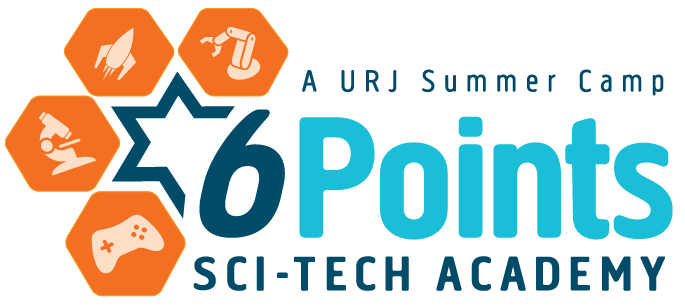By Rachel Landman, Assistant Director
During our first Shabbat of staff orientation we read the parsha Korach, which is named for Korach, who led a rebellion against Moses and Aaron, the leaders of the Israelites. In the beginning of the parsha Korachs says, “For all the community are holy, all of them, and the Eternal is in their midst. Why then do you raise yourself above the Eternal’s congregations?” Korach is upset with Moses and Aaron that some members of the community are separated out with special responsibilities, yet also separates himself from the community by leading a rebellion.
Although leading a rebellion, might not be the correct response to however Korach is feeling, it is evident that he feels his role in the community is not valued. This got me thinking about the role I take in the many communities in which I am a part, and how I show others that their role is holy. We live in communities of our family, work, school, friends, CAMP, and many more.
But let’s also zoom out and think about the broader community we live in, our ecological community. All of our communities are mini ecosystems, made up of people, places, and things that all have a purpose and balance each other out. As we often do in scientific research, I decided to look at a case study of one of my favorite ecosystems, the Serengeti.
In the Serengeti, everything has its roles. This ecosystem is made up of numerous flora and fauna, more than we can even observe, yet when we imagine the Serengeti we see the majestic elephants, endless herds of zebra and wildebeest, and scary lions and carnivores. When we look at each of the individual animal groups, do we ever consider their “holy” roles in this community?
Elephants have large tusks that dig water holes used by other animals. Their feet stir up dirt and bring small animals above the surface for the birds to eat and their dung disperses the seeds of the plants they consume. Elephants feed on tress and shrubs, allowing new plants to grow and making room for the grazers to feed.
The Grazers feed in a carefully planned succession. Zebra and wildebeest feed together so the zebra can eat the long grass making way for the wildebeest to feed on their preferred short grass. Following them, during the great migration, the gazelle and impala feed on the remaining grass and shrubs. Through migration and grazing across the entire plains, they open up the soil, consuming grasses before they dies, and allowing room for fresh plants to grow.
Carnivores have a top down impact through predation. Feeding on the herbivores that consumer the resources of the Serengeti, they contribute to population control, ensuring there are enough resources for all to subsist.
Although we might not think of their unique roles, the large animals and plants are what come to our mind. But what about all the other plants and creatures who fill unique and special roles in this community?
For example, one of my favorite animals, the dung beetle, a small but mighty animal that plays a crucial role in the ecosystem. After rolling their ball of dung into a perfect sphere for easy transportation, dung beetles use the polarization pattern of the sky for orientation when transporting it to a safe place. Throughout this process dung beetles cycle nutrients in the soil, prevent parasitic flies from breeding in the dung, disperse seeds, and change the texture of the soil to produce a healthy environment for new plants and resources. We rarely notice what the dung beetle does, yet it has a crucial, and holy role in this Serengeti community.
So how could this possibly relate to camp? In our camp community we have many different types of campers. We have campers who stand out from the community because they outgoing, share their talents, and like to be in front of the group, and we also have campers who stand out from the community because they might be having some challenges and need more support. Each of those groups of campers take up a lot of our energy and attention, but that does not mean their role in the community is more or less important than anyone else. Our largest group of campers falls in this middle section, they listen to rules, they enjoy activities, but they don’t make themselves stand out. This doesn’t mean they are any less special, or their role is any less holy, it just means they haven’t separated themselves from the community.
In the parsha, it is apparent that Korach and his followers had a need that was not being met and that is why they separated themselves from the community. Not everyone needs a role that makes them stand out apart from the community, but everyone needs to know that wherever they fit into our ecosystem is important and invaluable.
As a Leadership Team, I challenge you find and value the role of each and every one of our staff members and campers in the Sci-Tech ecosystem. Look out for those campers who might not be taking up as much of their counselors attention and show them how they matter. Find value in each other and the role we all play to sustain the Sci-Tech ecosystem. Everyone at Sci-Tech is essential to our holy community, making our ecosystem whole and complete.
